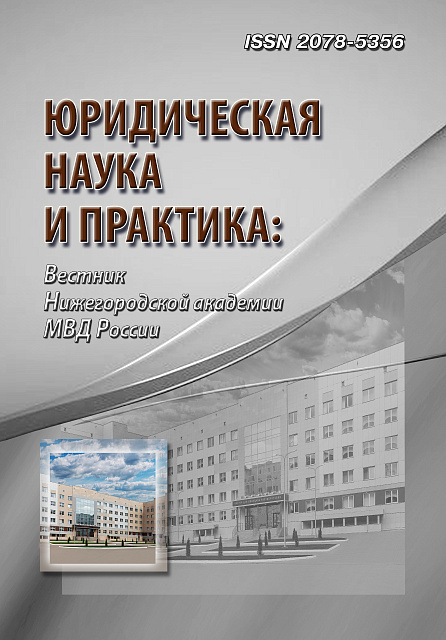Russian Federation
UDC 34
The purpose of the work is to present scientific provisions that provide the theoretical basis of the legislative and textual approach to criminal law prescriptions. Methodology. The dialectical method of cognition in conjunction with instrumental scientific methods is used as a methodological basis for this study. Main results: 1) the technocentric orientation of representatives of various scientific organizations is based on a linguistic approach to law-making. The consequence of this is the identification of language and technical elements of legislative technology; 2) the new legislative-textual approach makes it possible to improve the quality of criminal law by developing optimal models of criminal-legal prescriptions, observing the compositional and graphic design of the normative text, identifying non-standard elements of crimes, as well as by developing rules for constructing notes, providing legislative-textual interpretation of prescriptions, and analyzing changes and additions to the text of the criminal code of the Russian Federation. Conclusion. Legislative textology is a promising direction of research regulatory requirements, builds on the achievements of the legal-technical industry knowledge, respond to unresolved legal technology issues of designing quality of the regulations allows a two-level interpretation of the regulatory text in the course of application of criminal law.
language approach to criminal law, legislative and textual approach, design features of regulations, classification of crimes and notes, two-level interpretation
1. Lublinsky P.I. Technique, interpretation and casuistry of Criminal code. Moscow: Zertsalo Publ., 2004. 248 p. (In Russ.)
2. Iering R. Legal technique. Moscow: Statute Publ., 2008. 231 p. (In Russ.)
3. International and national criminal law: problems of legal technology: collection of articles. Moscow: Lexest Publ., 2004. 456 p. (In Russ.)
4. Panchenko P.N. Optimization of criminal policy and problems of law and order in the economy. Nizhny Novgorod: Nizhny Novgorod Academy of the Ministry of internal Affairs of Russia, 2004. 456 p. (In Russ.)
5. Nazarenko G.V. Theory of state and law: a course of lectures. Moscow: OS-89 Publ., 2009. 176 p. (In Russ.)
6. Alekseev S.S. General theory of law: in 2 vol. Vol. 1. Moscow: Legal literature Publ., 1981. 543 p. (In Russ.)
7. Encyclopedia of criminal law. Vol. 2: Criminal law. St. Petersburg: Publishing house of prof. Malinin, 2005. 698 p. (In Russ.)
8. Kudryavtsev V.N. General theory of crime qualification. Moscow: Yurist Publ., 2004. 304 p. (In Russ.)
9. Muller C.F. Strafreht Allgemeiner Teil. Die Straftat und ihr Aufbau. 38 Auflage, Heidelberg: C.F. Muller Verlag, 2008. 386 p.
10. Tikhomirov Yu.A. Theory of the law. Moscow: Legal literature Publ., 1982. 256 p. (In Russ.)
11. Nomography: theory and methodology of rule-making /ed. by J.G. Arzamasova. Moscow: Akademicheskiy Prospekt: Triksta Publ., 2007. 360 p. (In Russ.)
12. Boyko A.I. System and structure of criminal law. In three volumes. Vol. 2: System environment of criminal law. Rostov-on-Don: publishing house of SFU, 2007. 640 p. (In Russ.)
13. Sitnikova A.I. Criminal-legal texts: monograph. Moscow: Yurlitinform Publ., 2016. 304 p. (In Russ.)
14. Panko K.K. Methodology and theory of legislative technique. Voronezh: Voronezh state University Publ., 2004. 272 p. (In Russ.)
15. Kashanina T.V. Legal technique. Moscow: Eksmo Publ., 2007. 512 p. (In Russ.)












